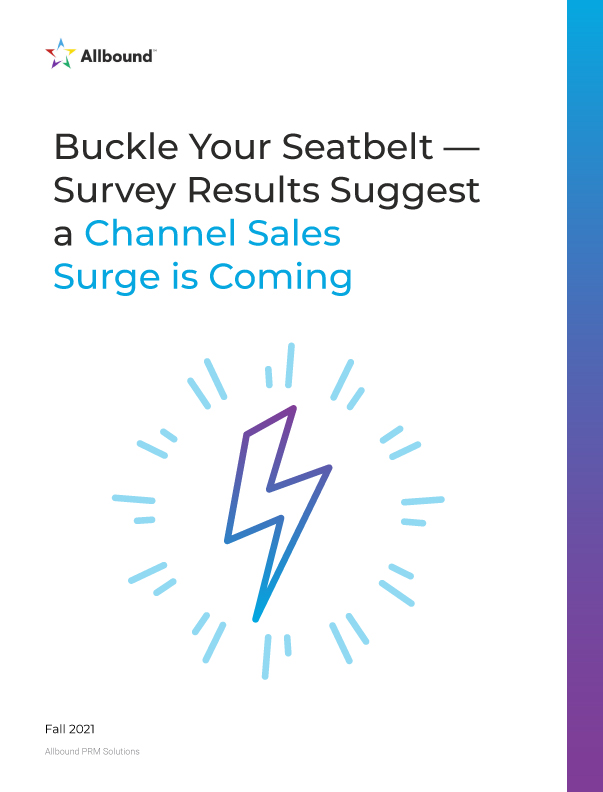Topics
eMetrics Summit Boston: Data-Driven Marketers Are Becoming ‘Indispensable’
 By Brian Anderson, Associate Editor
By Brian Anderson, Associate Editor
Editor’s note: As part of a special arrangement, this feature is being published on Channel Marketer Report. The article initially appeared on MarketingID.
Big Data and marketing analytics are becoming must-have currency for marketing success, and businesses across a wide variety of industries and verticals are looking to individuals who can help make sense of all the metrics in their databases, according to several presenters at the eMetrics Summit held in Boston.
Several speakers pointed to a Forrester study stating that 50% of decisions are intuition-based due to a lack of accurate, quality data. During the opening keynote, eMetrics founder Jim Sterne noted that data-driven marketers are becoming indispensable due to the overwhelming tasks they undertake.
“Data is like sand, each individual grain of sand is amazing,” Sterne noted. “However, [marketers] are being asked to read a desert.”
The notable difficulty of effectively managing data is a familiar feeling for today’s data-driven companies, according to Stéphane Hamel, Founder of Immeria Consulting Services. An attendee poll taken during Hamel’s session showed that 93% of attendees believe digital analytics is “hard.” The challenge is guaranteeing that the data is accurate, but Hamel notes that it isn’t the main concern.
“Data quality isn’t about having correct data, it’s about having faith in the data,” Hamel said.”[Marketers] have to have enough faith to make business decisions.”
Presenters also noted that having too much faith in models leads to a limited understanding of the data marketers are collecting and leveraging within their campaigns.
While no data model is completely accurate, some are more effective others. “The useful ones have a time value, because things change. If you clean the data, mold it and refine it, it can help you see through walls and see over long distances,” Sterne noted.
Sterne highlighted two expectations that data-driven marketers need to meet in order to find success.
1. Understand the raw material: Before you can gain actionable insights from marketing analytics, marketers must make the effort to learn about what metrics are being collected and which metrics impact marketing success. Marketers need to “get to know [their] data, understand it and comprehend,” according to Sterne.
2. Understand the tools: While many businesses tend to be attracted by new tools and technology, this often leads to investments that are not in the company’s best interest. Sterne noted that data-driven companies “need to understand what these tools do and how to effectively manage them together.”
Importantly, Sterne noted that data-driven marketers need to have a set strategy and goals to clearly identify success and business impact. “Analytics without goals is narcissism,” Sterne noted. “Goals must be defined, specific and supported.”
Governance Tops Tasks for Analytics Maturity And Alignment
As our requirements become more complex, we’ll begin stepping on the toes of other people from different department, according to Hamel. “Many are at a stage where they are challenged to integrate with their back office. There will be some friction, but marketing has to have a friendly partnership with IT.”
Hamel highlighted the steps businesses needed to take in order to mature its analytics initiatives:
- Governance and data-driven culture: having a clear hierarchy that all the departments agree on;
- Scope and objectives: having clear goals for your data initiatives;
- Team and expertise: having the right people to do the job;
- Process and methodology: formulating a rule-based game plan; and
- Technology: the tools required to get the job done.
The technology you use is the least important aspect, according to Hamel. “The problem is often that they don’t have the resources to leverage those tools to their full potential.”
Avoiding The Sins Of Marketing Analytics
During one track session, John Lovett, Senior Partner at Analytics Demystified, highlighted several “sins” that data-driven marketers are falling victim to — ultimately limiting or negatively impacting their data initiatives and media investments. At the top of the list was a feeling all marketers have experienced with their data: mistrust.
“Data [oftentimes] does not match business requirements,” Lovett noted during his session. “Reporting is then dismissed as inaccurate, and analysis is weakened due to underlying skepticism.”
Lovett highlighted a U.S. retailer using an advanced analytics tech that had a lot of skepticism in the data being collected. The company conducted a digital analytics audit, implemented a data quality process and began reporting revenue data in a way stakeholders could comprehend. This led to more data-driven business decisions, and trust was regained in the company’s customer data.
“It took some work to get there,” Lovett noted. “But by teaching the business how to use the data, it won back the trust of business stakeholders.”
Other important sins that Lovett warned attendees to avoid include:
- Bias: “Bias erodes confidence and creates skepticism,” Lovett said. “It creates discord, leads to bad decisions and costly media buys.”
- Greed: When stakeholders get greedy, they ask for more than is physically possible from data analysts. “Data greed creates capacity problems, data cleansing becomes a monumental task and interpretation of data is skewed,” Lovett added.
- Haste: When analytics is often included at the 11th hour, it can create undue stress and flimsy results, according to Lovett. “There is no alignment between campaigns and goals. Then post-campaign analysis is misguided, which makes proving ROI challenging.”
- Waste: When senior leaders often asked for data and analysis, only to discard it and not use it at all, it leads “to a diminish in company success,” Lovett noted.
Ultimately, the inability to take the initiative to make change in data initiatives is the biggest sin of all, according to Lovett. “Knowing your guilty [of these sins] and not doing anything about it is the worst issue. Promote change, and ask yourself questions to help create change.”



![The Art And Science Of Content Marketing [Infographic]](https://channelmarketerreport.com/wp-content/uploads/2014/06/the-art-science-of-content-marketing-300x300.png)










